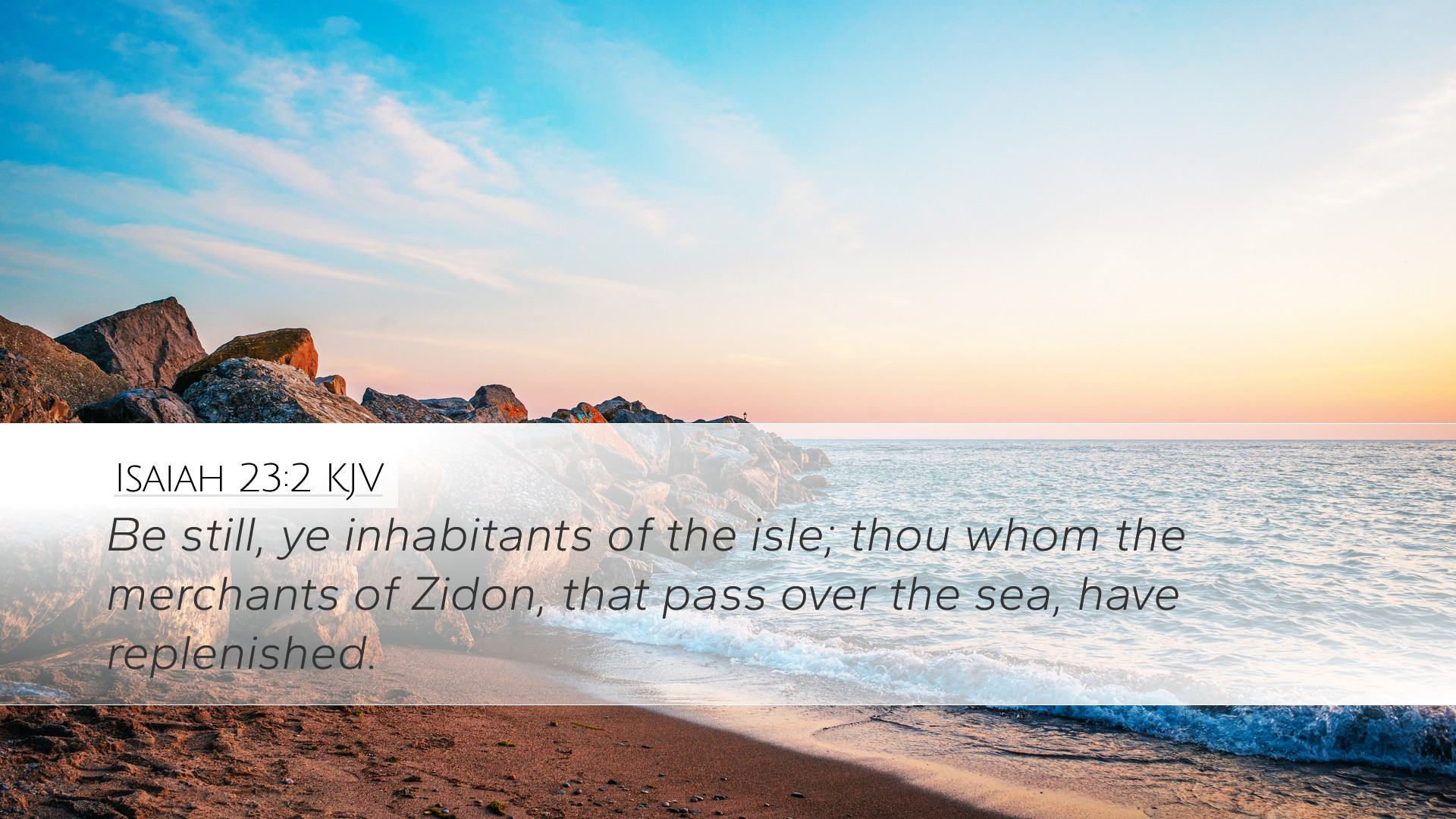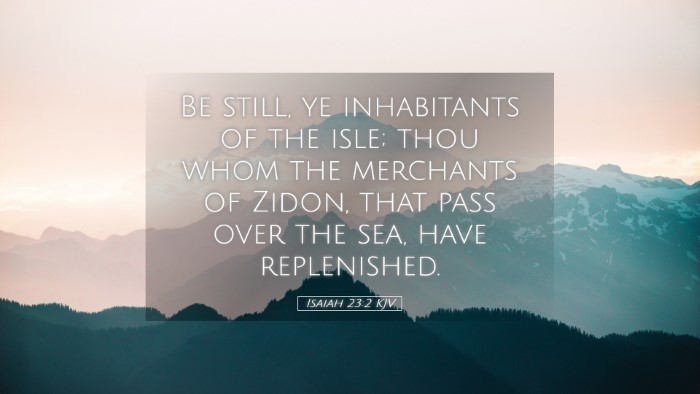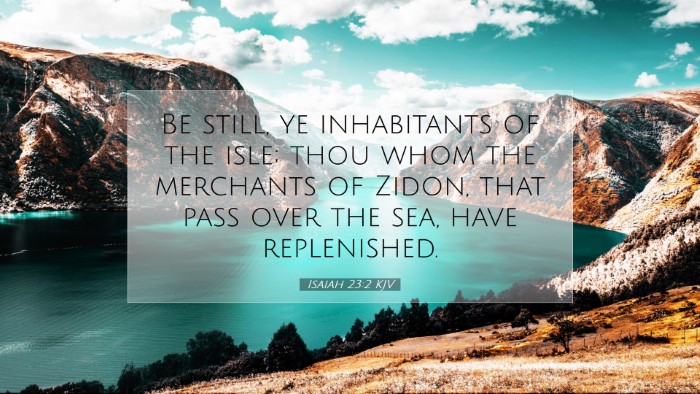Commentary on Isaiah 23:2
Verse Text: "Be still, you inhabitants of the coastland, you merchants of Sidon; your traders have crossed the sea,
Introduction
Isaiah 23:2 presents a significant moment in the prophetic literature, addressing the city of Tyre and its surrounding coastal regions, particularly the merchants of Sidon. The verse carries profound implications regarding commerce, divine judgment, and the geopolitical realities of the ancient Near East. Herein, we synthesize insights from notable public domain commentaries, providing a comprehensive examination of this verse's meaning and significance for contemporary readers, including pastors, students, theologians, and scholars.
Contextual Background
The prophecy found in Isaiah 23 concerning Tyre is part of a larger collection of oracles against foreign nations. The city of Tyre, a major Phoenician seaport, was renowned for its wealth and maritime trade, playing a pivotal role in the economy of the region. Understanding the socio-political landscape is crucial for a proper interpretation of this passage.
Historical Context
Matthew Henry reminds readers that Tyre had established itself as a powerful trading center, engaging in extensive commerce with various nations. The reference to Sidon, its sister city, highlights the interconnectedness of these merchants and their shared fate in the face of impending judgment.
The Importance of Silence
The command to "be still" is significant. Albert Barnes notes that this term implies a cessation of activity—suggesting a moment of reflection amidst an impending crisis. The merchants, accustomed to the buzz of daily trade, will find themselves in a state of bewilderment as disaster looms, emphasizing the vulnerability of economic centers under divine judgment.
Thematic Analysis
The Judgment of God
Isaiah's oracles often focus on divine judgment, and this verse is no exception. Adam Clarke emphasizes that the stillness commanded may foreshadow the desolation that will come upon the merchants and their businesses. Their identity and livelihood are tied to trade, which will collapse as a result of God’s judgment.
The Role of Commerce in Society
In considering the broader implications of this judgment, it is essential to reflect on the role of commerce in society. As observed by Matthew Henry, there is a spiritual lesson regarding reliance on earthly wealth. The State of Tyre, renowned for its opulence, serves as a warning against materialism and the false security found in riches. The cry to "be still" invites an introspective moment, challenging the value systems of its inhabitants.
The Theological Significance
The movement from bustling trade to sudden stillness reflects a profound theological reality: God's sovereignty over human affairs. Albert Barnes points out that even the mightiest of nations and their commerce cannot withstand the will of God. His judgment serves human purposes, both as warning and as demonstration of His authority over all the earth.
Application for Today's Audience
Lessons for Pastors and Theologians
This verse serves as a call to examine our reliance on worldly pursuits. Adam Clarke encourages pastors to harness this passage as a means to remind congregants of the fleeting nature of material wealth. The spiritual mandate to ‘be still’ invites believers to slow down, reflect, and realign their priorities towards eternal significance rather than temporal gain.
Encouragement for Students of Scripture
For students and scholars, Isaiah 23:2 embodies the richness of prophetic literature, juxtaposing immediate historical realities with everlasting truths. As they explore the texts, they encounter the nuances of language and imagery that the prophets used to convey messages from God, prompting a deeper engagement with the text's implications.
Conclusion
Isaiah 23:2, while initially addressing the inhabitants and merchants of Tyre and Sidon, transcends its immediate context to offer universal truths about divine judgment and the nature of wealth. As we reflect on the themes of stillness and reliance on God, both present and future readers are encouraged to seek deeper relationships with God, more significant than any material possession.
Final Thoughts
In summary, the insights derived from Matthew Henry, Albert Barnes, and Adam Clarke reveal that the message of Isaiah 23:2 is timeless, urging a reassessment of values and priorities amidst the transient nature of the world. This passage encourages believers to embrace a posture of stillness before the Lord, acknowledging His sovereignty and the reality of His judgments.


